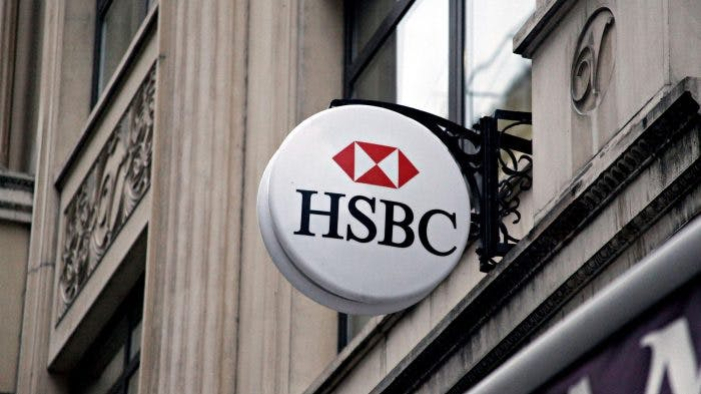HSBC announces it will no longer finance new oil and gas fields

The success
HSBC, the UK’s biggest high street bank and one of the world’s biggest financers of fossil fuels, will no longer finance new oil and gas field sand new metallurgical coal mines, to introduce strict requirements for new clients relating to oil and gas exploration, and to set an absolute thermal coal lending target of 70 per cent reduction by 2030. There remain, however, elements in the new policy that need improving.
BankTrack's role
BankTrack has long advocated for banks to bring an end to new fossil fuel finance, including new oil and gas fields, by major banks including HSBC, including by developing the widely-supported Global Call on Banks as part of the Fossil Banks, No Thanks campaign. We have engaged with HSBC on this issue including through the annual Banking on Climate Chaos report and through pressure around shareholder meetings. We will continue to engage with HSBC and other major banks to phase out finance for fossil fuel expansion and increase investments in low-carbon alternatives.
Responding to today’s announcement that HSBC, the UK’s biggest high street bank and one of the world’s biggest financers of fossil fuels, will no longer finance new oil and gas fields, Jeanne Martin, Head of the Banking Programme at responsible investment NGO ShareAction, said:
“HSBC’s announcement sends a strong signal to fossil fuel giants and governments that banks’ appetite for financing new oil and gas fields is diminishing. It sets a new minimum level of ambition for all banks committed to net zero.
“We urge major banks like Barclays and BNP Paribas to follow suit.
“However, HSBC’s announcement only applies to asset financing, and doesn’t deal with the much larger proportion of finance it still provides to companies that have oil and gas expansion plans. We expect to see HSBC come forward with new proposals that will address this as soon as possible.
“The public and investors expect the banking sector to play its part in tackling climate change. If the bank’s executives don’t step up, they can expect concerned shareholders to force them to act.”
More information on today’s announcement
Today’s pledge followed a shareholder resolution asking HSBC to update its oil and gas policy, which was coordinated by ShareAction and institutional investors earlier this year.
Over the last six months, ShareAction has been engaging with HSBC on the contents of its new energy policy. These productive engagements contributed to HSBC committing not to finance new oil and gas fields and new metallurgical coal mines, to introduce strict requirements for new clients relating to oil and gas exploration, and to set an absolute thermal coal lending target of 70 per cent reduction by 2030, among other things. However, other elements of the bank’s new energy policy need improving.
For example:
- HSBC has indicated it would restrict financing to companies that have substantial exposure to some types of unconventional oil and gas and geographical areas that are often associated with high environmental, social, and financial costs. However, more information is needed about how the bank defines substantial and whether this will lead it to cut ties with any current clients.
- This new loosely defined commitment does not apply to shale gas. This is concerning given that HSBC was Europe’s fifth largest fracking financier and 20th globally between 2016 and 2021, according to the Banking on Climate Chaos report. Currently, HSBC only has a due diligence process in place for shale gas.
- HSBC says it will assess its oil and gas clients’ transition plans against specified criteria including exploration and development plans. But the bank has not set out any red lines for clients – for example on whether new exploration and new oil and gas fields would be permitted – and its assessments do not have any binding consequences.
Notes to editors
ShareAction is campaigning for HSBC and other banks to phase out fossil fuels, create credible action plans to get to net zero and increase investment in low-carbon alternatives.
Our new analysis this week assessed the climate change and biodiversity strategies of Europe’s 25 biggest banks. It found that banks’ fossil fuel policies are full of loopholes and their financing is not aligned with 1.5C pathways. Encouragingly, it found that the number of banks announcing asset finance restrictions on new oil and gas fields has doubled in eight months. However, only three (Commerzbank, La Banque Postale, and Santander) had a specific restriction on financing to companies expanding oil and gas regardless of supply segment.
ShareAction research in February found that European banks provided over US$400 billion to 50 leading companies expanding oil and gas production between 2016 and 2021, with HSBC, Barclays and BNP Paribas the worst offenders. The report found that 92 per cent of this financing was in the form of general purpose corporate finance, with only eight per cent project finance or dedicated financing. This means that to be credible on climate action, banks’ policies need to cover both fossil fuel projects and the companies building and operating them.
From ShareAction.org.
Also see Bank on Our Future's statement.
